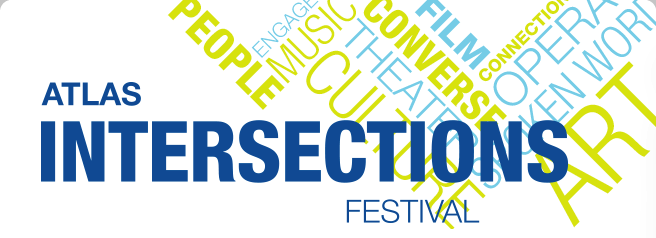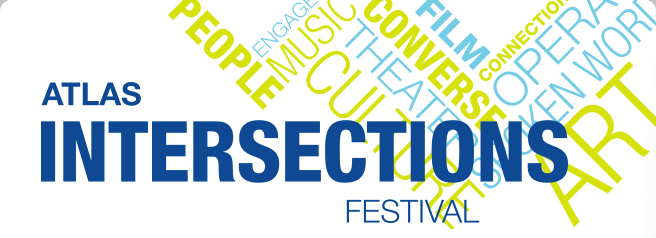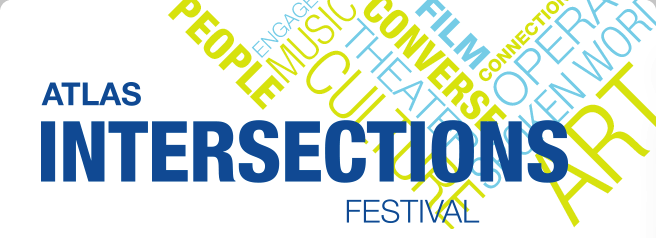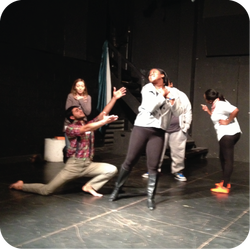 After months and months of meetings and rehearsals dedicated to planning, revising, and investigating issues of race, class, gender and geography, the faculty and students of DC University Theatre Collective will be teching their performance. I'm really quite proud of them and excited for all that they've learned and experience. If you're able to attend, you're in for a beautiful and transformative experience. On Thursday, February 28th, for the first time, theatre faculty and students from the University of the District of Columbia, American University, Howard University, Catholic University, George Washington University and Georgetown University unite to create new theatre. Share what these diverse students and their faculty mentors have discovered while working to build community and make theatre across perceived boundaries of race, class, gender and geography. What awaits this next generation as they step up to the plate? Experience a dynamic theatrical window into the future. 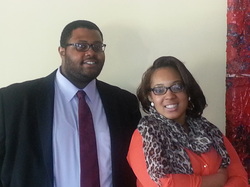 What: DC University Theatre Collective: NextUS at the Atlas Intersections Festival When: Thursday February 28, 2013 @ 7:00PM Cost: $5 General/Student/Senior. Click here to purchase tickets. Where: Atlas Performing Arts Center, 1333 H Street, NE, Washington, DC 20002. Now, let's here from UDC students, Bakri Mohamed-Nur and Margaret Smith. JACQUELINE LAWTON: On Thursday, Feb 28 at 7:00pm, you will be performing in the DC University Theatre Collective’s NextUS at the Intersections Festival. What excited you about taking part in this performance? BAKRI MOHAMED-NUR: As a graduating senior, I am about to embark on the next step of my life, which is becoming an artist of my community. Being a member of the festival is somewhat of a coming out party. It is a great honor to be a part of the Intersections Festival. I have attended performances that have been a part of the festival for the past two years. Taking part in is truly a dream come true. JL: Can you talk a bit about the rehearsal process? What was it like to work with professors and students at other universities? BMN: Coming from The University of the District of Columbia, I was unsure of what to expect of the other students and professors. I had a fear that I would get lost or not be able to keep up. All of those apprehensions quickly went out of the window. At the end of the day students are students and artists are artists no matter what school their attending. With that being said, we are all very different and those differences were used to build a devised theater piece. To be honest, I think we really got to cooking when the professors realized that there were too many cooks in the kitchen and we were capable to work without coddling. They reluctantly took a step back and we accomplished so much. JL: Can you tell us about your role? BMN: I don’t want to give away too much, so I’ll talk about my role in the process of creating the piece. As a student, I attended monthly rehearsals, created scene work, wrote monologues and assisted in developing an outline for the show. JL: What did you learn from this experience? Do you feel that it’s helped you in any way? BMN: The biggest lesson I have learned is that I am way more capable and prepared as an artist than I thought I would be. I hear the names of the big illustrious universities that are also participating in the collective with me and no longer feel subpar, inadequate or under-educated. The education and training I have received at UDC is just as good, if not better! This whole experience has helped me understand that a name is just that, a name. “A rose by any other name would smell as sweet.” JL: Why should audiences come see DC University Theatre Collective NextUS? What do you think they will learn from this performance? BMN: The main reason people should come see this show is because I’m in it along side a great cast of student theatre artists. This is the first production of its kind and hopefully will not be the last. The show gives great insight on our generation, how we are perceived and who we want to be. It will be a great show. 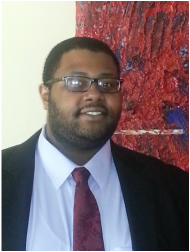 BAKRI MOHAMED-NUR Bakri Mohamed-Nur is a senior theater arts major at the University of the District of Columbia. A native Washingtonian, Bakri is proud alumni of City at Peace Washington DC. Here he gained a profound respect and love for art for social change. Bakri is a leader to his peers and an inspiration to those younger than him who aspire to become artist and walk in his footsteps. With a great passion for acting, Bakri hopes to one day be an accomplished actor and open his own school of performing arts. He has portrayed such roles as; Walter Lee: A raisin In The Sun, DJ: Medal Of Honor Rag, Miss Roj: Colored Museum, the Wiz: The Wiz but also has a flair for backstage work such as stage craft, prop mastering, stage management and lighting. This will be Bakri’s debut in the Intersections Festival. He sees this as the next step in his quest towards artistic excellence. JACQUELINE LAWTON: On Thursday, Feb 28 at 7:00pm, you will be performing in the DC University Theatre Collective’s NextUS at the Intersections Festival. What excited you about taking part in this performance? MARGARET SMITH: What excited me about taking part in this performance was that I got the opportunity to work alongside smart, talented and determined students in the DC area. Also, I was excited to produce an original piece with some of the best theatre arts professors from various universities in the District. JL: Can you talk a bit about the rehearsal process? What was it like to work with professors and students at other universities? MS: The rehearsal process was exciting! When we first began this project, I could tell that the students and professors were eager to make create something new and original. We knew this opportunity was special and wanted something amazing to happen. Together, we participated in a number of theatre exercises and tried different strategies to generate materials for use in the final presentation. Interestingly, midway in our meets, our rehearsal seemed to steer away from the original goal to create a devised theatre piece. When this happened, I could see that the professors were working through different strategies. Ultimately, we all got on the same page and back on track. Not only that, but the professors entrusted and empowered the students to create our own work. JL: Can you tell us about your role? MS: My role in creating this devised theatre piece was to contribute my creativity and share my perspective on certain experiences. My character’s role will show the stereotype of a student at UDC and the performance will reveal the true elements of a student at UDC with depth and honesty. It's really powerful. JL: What did you learn from this experience? Do you feel that it’s helped you in any way? MS: What I learned from this experience is that UDC offers a wonderful education from top of the line professors, such as Lennie Smith, who not only educate students about the fundamentals of theatre, but also creates and nurtures artists by preparing students to go out into the world and excel in the world of theatre. I feel like this experience has helped me in the way that it made me more aware of how important it is to work together and listening to others, while showing them respect. JL: Why should audiences come see DC University Theatre Collective NextUS? What do you think they will learn from this performance? MS: I think audiences should come see the DC University Theatre Collective NextUs, because it’s a fabulous piece with a message to others defining our generation. Through this performance, we are able to tell you who we are, where we stand and where we are going. It’s a chance to see students and professors from universities in the DC come together for the first time. Through theatre, we are breaking cultural and class barriers. I believe that the audience will learn the true mean of “NEXTUS”. 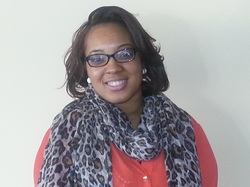 MARGARET SMITH Margaret Smith was born in Washington D.C. She is currently a rising senior at The University of the District of Columbia majoring in Theatre with a passion for creative writing and dance. She is one of the Highest Honors students achieving numerous academic awards; while being a continuing Dean List achiever and she is a chosen applicant of the Thurgood Marshall Scholarship fund amongst the best of the best students from HBCU’s all over the United States. She has taken on many roles in the plays “The Wiz”, “Annie”, “Romeo and Juliet”, “A Mood for Ms. Eunice”, and the “Colored Museum” also teaming up with Juilliard providing the highest caliber of artistic education and learning for gifted young children in drama, music, and dance. She also was a featured performer in the latest Chuck Brown video. Margaret has a deep passion for live performance, whether it’s acting or dancing, she loves the art. Besides the different performing art genres, she loves to spend her time reading novels, hanging with friends and family, and learning something new. She has big dreams of becoming an accomplished writer, somehow uniting with the entertainment business. She conquers everything she sets out to do, making the word “cant” non-existent in her vocabulary, while believing that the only thing that can stop a person from achieving their dreams is themselves. Dream big and watch her dreams become your reality.  The only public university in the nation’s capital and the only urban land-grant university in the United States, The University of the District of Columbia is committed to a broad mission of education, research and community service. Established by abolitionist Myrtilla Miner in 1851, the University of DC offers Associate’s, Bachelor’s and Master’s Degrees and a host of workplace development services designed to create opportunities for student success. The University is comprised of a Community College, School of Engineering and Applied Sciences, School of Business and Public Administration, College of Arts and Sciences, College of Agriculture, Urban Sustainability and Environmental Sciences, and the David A. Clarke School of Law. To learn more, follow this link: www.udc.edu 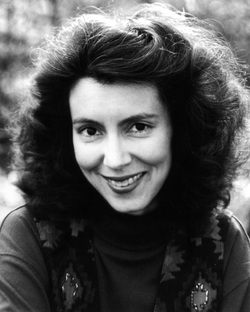 Imagine: Art that encourages compassionate listening and provocative questioning. The best professional, emerging, community and student artists from DC and beyond. Theaters filled with diverse, dynamic audiences. Conversations over a glass of wine in the café with a someone new who has just had the same experience as you. Chances to perform, discuss, party! All this and more awaits you at the INTERSECTIONS Festival at the Atlas from February 22 - March 10, 2013. Now in its fourth year, this unique all-arts festival brings together more than 100 performing groups over twelve days to offer music, theatre, dance, film and spoken word that captures a kaleidoscope of perspectives on our ever-evolving community and world. All five of our performances spaces will be alive with world premieres and innovative collaborations among artists of all ages, races, cultures and art forms. From Family Saturdays featuring performances and events for children to late-night parties and jazz jam sessions, INTERSECTIONS seeks to connect the broadest possible audience with the most exciting new ways of making community-inspiring art. We invite you to join us -- to be delighted, energized and maybe just a little transformed. --Mary Hall Surface, Festival Artistic Director
0 Comments
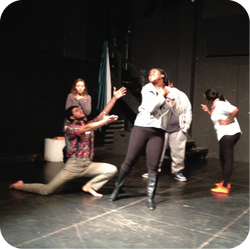 As I mentioned in my previous post, something wonderful and exciting is happening on Thursday! For the first time, theatre faculty and students from the University of the District of Columbia, American University, Howard University, Catholic University, George Washington University and Georgetown University unite to create new theatre. Share what these diverse students and their faculty mentors have discovered while working to build community and make theatre across perceived boundaries of race, class, gender and geography. What awaits this next generation as they step up to the plate? Experience a dynamic theatrical window into the future. What: DC University Theatre Collective: NextUS at the Atlas Intersections Festival When: Thursday February 28, 2013 @ 7:00PM Cost: $5 General/Student/Senior. Click here to purchase tickets. Where: Atlas Performing Arts Center, 1333 H Street, NE, Washington, DC 20002. I had a chance to speak with UDC's Assistant Professor, Lennie Smith, about his experience. Please enjoy! JACQUELINE LAWTON: On Thursday, Feb 28 at 7:00pm, you will be performing in the DC University Theatre Collective’s NextUS at the Intersections Festival. What excited you about taking part in this performance? LENNIE SMITH: The opportunity to collaborate with local theatre faculty colleagues was what excited me the most doing this project. Unfortunately, we all are so busy in our little worlds creating great theatre for our university communities that we seldom get the opportunity to connect with each other as artist. This project expanded our horizon as local university theatre artist who all have common goals for our students and the local DC community. JL: Can you talk a bit about the rehearsal process? What was it like to work with professors and students from other universities? LS: We all agreed that the best way to do the rehearsal process is to partner up with another professor and take turn leading a rehearsal. This process was very enlightening and empowering for the students and the faculty, because we all got the opportunity to learn from each other and the students was able to work with the different styles of the professors. JL: Can you tell us about your role? LS: My role was to lead some of the rehearsals with another professor. I also was able to contribute more with the style and form of the pieces, because of my expertise in applied theatre. However, we all had something unique to contribute. JL: What did you learn from this experience? If you were to do this over again, what would you do differently? LS: First, I learned that our future is in good hands with our young artists. The students came in with so much creativity and a willingness to explore that it made our job easy. I really wouldn’t change too much because it is a process and as artist we have to remember that sometimes the work will take care of itself. JL: Why should audiences come see DC University Theatre Collective NextUS? LS: What do you think they will learn from this performance? I believe that the audience will be inspired by the synergy of the students. Remember, the students met for the first time during this process. When the audience experience what they were able to create about their perception of how they see themselves in the world they will be inspired and empowered. 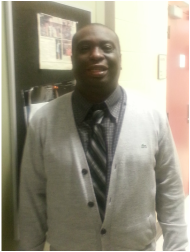 LENNIE SMITH Lennie Smith is a professor in the theatre program at the University of the District of Columbia, where he teaches a variety of courses in applied theatre, creativity, and drama. He is one of the most effective drama-based trainers in the field. His interactive approach to training is an empowering source that has empowered and entertained people all over the United States. A well-known director, playwright, lecturer, and workshop leader, he is also a RDT/BCT (Registered Drama Therapist/Board Certified Trainer).  The only public university in the nation’s capital and the only urban land-grant university in the United States, The University of the District of Columbia is committed to a broad mission of education, research and community service. Established by abolitionist Myrtilla Miner in 1851, the University of DC offers Associate’s, Bachelor’s and Master’s Degrees and a host of workplace development services designed to create opportunities for student success. The University is comprised of a Community College, School of Engineering and Applied Sciences, School of Business and Public Administration, College of Arts and Sciences, College of Agriculture, Urban Sustainability and Environmental Sciences, and the David A. Clarke School of Law. To learn more, follow this link: www.udc.edu 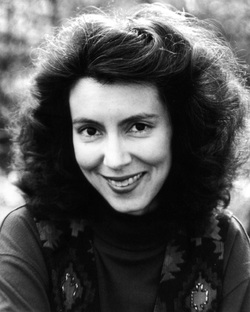 Imagine: Art that encourages compassionate listening and provocative questioning. The best professional, emerging, community and student artists from DC and beyond. Theaters filled with diverse, dynamic audiences. Conversations over a glass of wine in the café with a someone new who has just had the same experience as you. Chances to perform, discuss, party! All this and more awaits you at the INTERSECTIONS Festival at the Atlas from February 22 - March 10, 2013. Now in its fourth year, this unique all-arts festival brings together more than 100 performing groups over twelve days to offer music, theatre, dance, film and spoken word that captures a kaleidoscope of perspectives on our ever-evolving community and world. All five of our performances spaces will be alive with world premieres and innovative collaborations among artists of all ages, races, cultures and art forms. From Family Saturdays featuring performances and events for children to late-night parties and jazz jam sessions, INTERSECTIONS seeks to connect the broadest possible audience with the most exciting new ways of making community-inspiring art. We invite you to join us -- to be delighted, energized and maybe just a little transformed. --Mary Hall Surface, Festival Artistic Director  As I shared recently, the Theatre Arts program is one of twenty-one programs being discontinued at the University of the District of Columbia. The recommendation for discontinuance came down in March of 2011. Phase I of the proposal to implement these recommendations was submitted to the Mayor and City Council on October 1, 2012. As you can imagine, it was a challenging, lengthy and tenuous process. The level of uncertainly made for a stressful, disconcerting and somewhat hopeless environment. There was a lot of back and forth, but ultimately, final decisions were made. Along with Theatre Arts, here are the other programs being discontinued:
While, I never once envied those having to make these difficult and necessary for the sustainability and growth of the university, though seemingly incomprehensible decisions. I do wish I had had an opportunity to advocate on behalf of several of these programs. Mind you, I did my small part. When the news was first announced back in March of 2011, there had been hope we could move forward as a minor. I helped Assistant Professor Lennie Smith research and prepare a proposal for a minor program. In truth, I provided some research, but he deserves significant credit and praise for his time, energy and efforts. Unfortunately, this October decision has made all of that irrelevant. At least, for now. What makes this harrowing is that UDC is a historically Black institution and "the only public university in the nation’s capital and the only urban land-grant university in the United States." The significance of discontinuing a theatre arts program in a city with 84 theatres is quite frankly a slap in the face of reason, sense and cultural understanding. UDC should be a pipeline for students coming out of the DCPS school system offering a training ground to those with the talent, skill, passion, drive and courage to pursue a career in the theatre arts, but who may lack the financial resources to attend a far more expensive college. This issue particularly hits home to me, because I was that student. Only, I had the University of Texas at Austin, another public institution. To put this somewhat into perspective, the decision to discontinue these programs is part of the university's right-sizing plan, which also includes the abolishments of several staff and faculty positions: "The Board of Trustees of the University of the District of Columbia tonight approved the abolishment of 69 positions as part of its ongoing commitment to reduce operating costs at the University. The job actions, along with 28 other position eliminations, impact faculty and staff, including executive level positions and are estimated to save the University approximately $8.5 million in annual operating costs." Now, Professor Smith and I are in a better position than many folks, because we're able to see our students through to the end of the semester. I'm very appreciative of that, because I love teaching at this university. Our current students will be allowed to graduate as majors. Professor Smith put the courses in for the schedule yesterday. However, we don't know who will be teaching the classes. Despite all that happened/still happening, Professor Smith and I are focused, committed and working to create opportunities for our students. Fortunately, there are many wonderful, smart and powerful folks at the university who are supporting and encouraging us. Namely, our Chair, Dean, Provost, and Interim President. They've been extraordinary. They truly value the arts, especially the theatre arts. They believe that theatre is an essential part of our community, that it enriches, educates and entertains and that it can be used as a vehicle for positive change. When they learned that Professor Lennie Smith and two our graduating senors, Bakri Mohamed-Nur and Margaret Smith were taking part in the Intersections Festival, they were overjoyed with pride. They immediately purchased tickets and helped spread the word. Now, it's time I do my part and I couldn't be more thrilled to share this news with you! 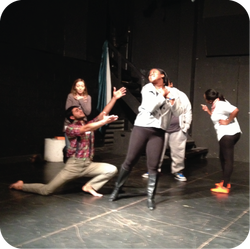 On Thursday, February 28th, for the first time, theatre faculty and students from the University of the District of Columbia, American University, Howard University, Catholic University, George Washington University and Georgetown University unite to create new theatre. Share what these diverse students and their faculty mentors have discovered while working to build community and make theatre across perceived boundaries of race, class, gender and geography. What awaits this next generation as they step up to the plate? Experience a dynamic theatrical window into the future. What: DC University Theatre Collective: NextUS at the Atlas Intersections Festival When: Thursday February 28, 2013 @ 7:00PM Cost: $5 General/Student/Senior. Click here to purchase tickets. Where: Atlas Performing Arts Center, 1333 H Street, NE, Washington, DC 20002. Tomorrow, I'm going to share interviews with UDC assistant professor, Lennie Smith, and graduating seniors, Bakri Mohamed-Nur and Margaret Smith. Stay tuned! A month or so ago, I was scanning through the Literary Managers and Dramaturgs of the Americas (LMDA) listserv and came across the following comment in the promotion of a new play:
"At a time when so many plays base their plots on specialized racial, ethnic, sexual or medically challenged causes, this work actually deals with a major human and world issue affecting all of us deeply." I was dumbfounded when I read this. Now, I haven't read the play and don't personally or professionally know the person who wrote this promotion, but based on this description, I can surmise the following:
Well, I'm glad this certain someone cleared that up for me. No, I can't even jest. Even now ... after sitting with this dangerous, small-minded and an exclusionary comment as long as I have, I can't make light of it. But for all that, here's all I have to say on the subject: The marketing of a play isn't easy. And perhaps it takes being from a marginalized group to know that it isn't smart, clever, or impressive to promote a play by denigrating or dismissing other plays that endeavor to share what life is like for characters living with and impacted by racial, ethnic, sexual or medically challenged issues. Just as "nice is different than good," compelling is different than offensive. A little something to consider on this Monday after the Oscar's, which you can read about here, here and here. 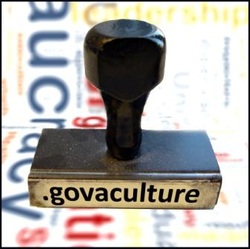 On February 22 & February 23, Active Cultures will present .GOVACULTURE at the Atlas Intersections Festival. You won't want to miss this super fun, wild and zany festival of 12 ultra short plays about working for the Federal Government. That's right, a theatre company is taking on the government! “We like to explore the local culture and this was a project I have been thinking about for a long time. Besides sports, the biggest shared culture we have is our connection to people in the federal government,” says Mary Resing, artistic director of Active Cultures. “We create theatre for work for a multigenerational audience and this was a good opportunity to showcase that for the Intersections audience.” What: .GOVACULTURE at the Atlas Intersections Festival When: February 22, 8:00pm & February 23, 9:30pm Cost: $15 General/$10 Students and Seniors. Click here to purchase tickets! Where: Atlas Performing Arts Center, 1333 H Street, NE, Washington, DC 20002. FEATURED PLAYS INCLUDE Buzzword Bingo by April Brassard the ditty "Department of State" by Timothy Guillot Work from Home by Madeline Muravchick To the Director by Jennifer Nelson Form 271 B by Alexandra Petri Deportation by Jean Koppen Curator: Mary Resing Associate Producer: Jennifer Osborn Playwrights: Jessica Aimone, Catherine Aselford, April Brassard, Evan Crump, Thembi Duncan, Kevin Finkelstein, Patrick Flynn, Timothy J. Guillot, Jean Koppen, Farah Lawal, Madeline Muravchik, Jennifer L. Nelson, Alexandra Petri, Mary Resing, and Mary Watters Directors: Jessica Aimone, Colin Grube, Farah Lawal and Mary Resing Dramaturg: Jacqueline Lawton govaculture is about all of us. From GS1 to GS12, whether you work for Feds or love someone who does. Featuring a large cast and multiple playwrights and directors under the artistic direction of Mary Resing, .govaculture captures Active Culture's dedication to creating fresh, smart work that reflects the world directly around us. visit the intersections festival website for more info Click here to support .govaculture with a donation of $10 or more .govaculture is sponsored by the Atlas Performing Arts Center and through the generous support of audience members like you! Interview with Artistic Director: Mary Resing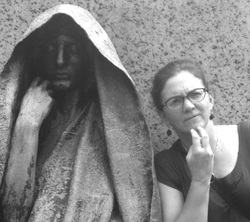 JACQUELINE LAWTON: What inspired you to create the .govaculture festival? MARY RESING: Active Cultures is a theatre devoted very specifically to local culture. We are kind of a nano-theatre. And one of the most significant and highly profile cultures in the DC area is the culture associated with working for the federal government. Everyone here is somehow connected to a federal worker. All of my life, I have heard anecdotes, jokes, and insider references to the federal workplace. I've had a ball transferring those stories to the stage. MR: What excited you about being a part of the Intersections Festival? JL: The Intersections Festival is designed to bring together people from all walks of life. Active Cultures believes theatre should represent its community, which in our case is diverse and multigenerational. Thus, Intersections is very simpatico with our work. Also, Active Cultures is based in the Gateway Arts District of Prince George's County theatre, so it's always exciting to take our work on the road, even if it is just 3 miles away to H Street, NE. JL: Why should audiences come to see the .govaculture festival? MR: It's really funny. We have things no other theatre has this week--tap dancing, balloon animals, rockin' songs about being furloughed--and its all local. Check out these great .GOVACULTURE rehearsal photos!About Active Cultures Theatre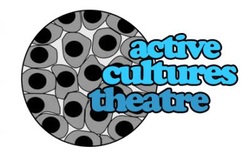 Our mission is to create smart and juicy theatre for a diverse, multigenerational audience. Active Cultures was created to address a need in American theatre. "American theatre has become so generic" says Ms. Resing, "The same plays are done all around the country, in exactly the same way. A theatre in Seattle might produce exactly the same season of plays as a theatre in Lakeland, Florida. And most of those plays were written by men sitting in their apartments in New York. We want to change that." Active Cultures will develop and produce plays which are deeply entwined with local interests and artists. "We start with a sliver of an idea, a moment, a story, that seems important to the people around us", says Resing, "Then we find artists who connect with the idea and expand it into a theatre piece About the Atlas Intersections Festival 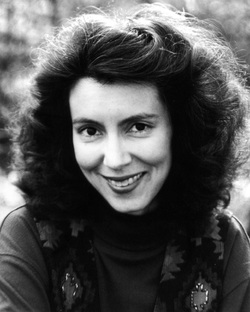 Imagine: Art that encourages compassionate listening and provocative questioning. The best professional, emerging, community and student artists from DC and beyond. Theaters filled with diverse, dynamic audiences. Conversations over a glass of wine in the café with a someone new who has just had the same experience as you. Chances to perform, discuss, party! All this and more awaits you at the INTERSECTIONS Festival at the Atlas from February 22 - March 10, 2013. Now in its fourth year, this unique all-arts festival brings together more than 100 performing groups over twelve days to offer music, theatre, dance, film and spoken word that captures a kaleidoscope of perspectives on our ever-evolving community and world. All five of our performances spaces will be alive with world premieres and innovative collaborations among artists of all ages, races, cultures and art forms. From Family Saturdays featuring performances and events for children to late-night parties and jazz jam sessions, INTERSECTIONS seeks to connect the broadest possible audience with the most exciting new ways of making community-inspiring art. We invite you to join us -- to be delighted, energized and maybe just a little transformed. --Mary Hall Surface, Festival Artistic Director 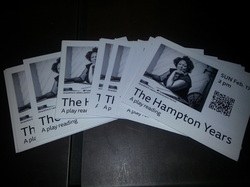 Early Sunday morning, Shirley Serotsky headed back to DC to participate in Theater J's Race In America: Where Are We Now? Presidents Day Weekend Symposium, which was presented in conjuction with their current production of David Mamet's Race. However, I was not without Theater J support and representation. The wonderfully supportive, Elaine Reuben, Theater J Council member and supporter of the Locally Grown Festival, traveled up for the occasion. We met at the Beyond Swastika and Jim Crow exhibit at the National Museum of American Jewish History and had just enough time before the reading to explore. Deborah joined us as did Rob Hargraves, Ian Lithgown, and Miriam White.  Now, as I shared in my last post, Theatre Ariel's Artistic Director, Deborah Mozes explained that learned aboutTHE HAMPTON YEARS when searching online for plays that addressed the Black and Jewish relationship. As it happens, when I was looking for research/inspiration to write a play about the Black and Jewish relationship, I stumbled across the Beyond Swastika and Jim Crow exhibit. It was here that I that learned about art professor Viktor Lowenfeld and his student John Biggers and became intrigued about what life was like for Blacks and Jewish people in the Segregated South. I searched around and found this essay entitled, Jewish Refugee Scholars at Black Colleges, by award-winning journalist, speaker, and singer, and author of Apples and Pomegranates: A Family Seder for Rosh Hashanah, Rahel Musleah, who speaks to how delicate and transforming this time period was for Blacks and Jewish people: “Sometimes the Jewish professors and their black students were made aware of the distinctiveness of their own people's experiences. For example, when Lowenfeld received a letter from the State Department detailing the tragic fate of his family, he said to his student Biggers, with whom he had forged a close relationship: 'John, you are segregated. You have to ride on the back of the bus. You can't drink water in any building. You don't have toilet facilities. But they are not burning you en masse. They are burning these members of my family and these people did not commit any crime. They were just born, that's all.' Years later, Biggers reflected on how this conversation made him understand and the extent of racial prejudice beyond his own experience: ‘I realized it went beyond black and white. I realized this was one of the truly great tragedies of the human family.’” This story really struck me and led me to dig even further. Later, I learned about artist Samella (Sanders) Lewis and that Elizabeth Catlett and Charles White were in residence at Hampton. Slowly, the play developed around these five artists, each of whom very much deserve their very own play. 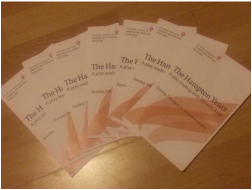 Soon, it was nearing 2:00pm, so we all made our way to the theatre. My dear friend Anisa Haidary surprised me, which was so lovely. We had a nice sized audience as well. In attendance were several board members who had seen the reading the night before and even brought a few friends with them. For whatever reason, I wasn't as nervous as I was the previous night and so was able to enjoy the experience fully. The cast looked wonderful on the stage and did such an excellent job. They seemed even more embodied of their characters and in tune with the circumstances of the world of the play. The post show discussion was filled with praise for the script and a deep appreciation for the examination of these artists. The cast spoke about how the play had impacted them, which had a great deal to do with art and self-expression, with speaking/not compromising the truth and the ability of theatre to be tool of social justice, empowerment and positive change in the community. It was really wonderful. I learned so much from our rehearsal and these two readings. I am so thankful to Deborah and everyone at Theatre Ariel for bringing together such a smart, talented, funny, and passionate cast to help me tell this story. I'm excited to incorporate all that I've learned into the next draft ahead of its reading at the Phillips Collection on Saturday, April 13 at 2:00pm. More details anon. For now, here are some photos from the reading at the National Museum of American Jewish History directed by Theatre Ariel Artistic Director Deborah Baer Mozes and cast Taysha Canales, Akeem Davis, Khris Davis, Stephen Hatzai, Robert Hargraves, Ian Lithgow, Ashley B. Spearman, and Miriam White. Enjoy! 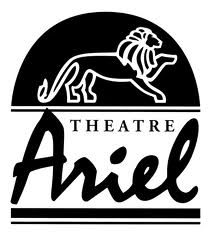 This past Saturday evening, THE HAMPTON YEARS received a reading as part of Theatre Ariel's Salon series. As Pennsylvania’s only professional theatre dedicated to illuminating the rich social, cultural and spiritual heritage of the Jewish people, Theatre Ariel entertains, enriches and educates audiences of all ages and cultures through the telling of Jewish Stories, celebrating the laughter and lessons of the shared human experience. When much of the American Theatre, specifically regional theatres, lends itself to the mainstream and doesn’t necessarily reflect the diversity of its community, it's a truly worthwhile and ambitious mission to operate a culturally specific theatre. Theatre Ariel's Artistic Director, Deborah Baez Mozes directed and the cast included Taysha Canales, Akeem Davis, Khris Davis, Stephen Hatzai, Robert Hargraves, Ian Lithgow, Ashley B. Spearman, and Miriam White. The reading was hosted in the beautiful, elegant and spacious home of Maureen Pelta, Department Chair and Professor of Art History at Moore College of Art, and Alan M. Feldman, Chancellor of the Philadelphia Bar Association. The walls of their home were adorned with original works of art that showed a refined taste and interest in African, Jewish, European and American culture. This was the perfect setting for THE HAMPTON YEARS. Deborah, Shirley Serotsky (Theatre J’s Associate Artistic Director and director of the world premiere of the The Hampton Years), and I arrived along with the cast at 7:00pm to figure out the space and set up music stands. It was an oversold event, but we ended up having enough seats for everyone. We all settled in quite comfortably a little after 8:00pm. Speeches of gratitude and recognition were made. I loved hearing these speeches, because I was instantly made aware of all the people who came together to make this reading happen. I was filled with such appreciation for their efforts. Deborah spoke and then shared that she had learned about my play while looking online for plays about Black and Jewish relations. She found my blog, Staging Strife and Solidarity: Black-Jewish Relations in American Drama, and then reached to me through Theater J. 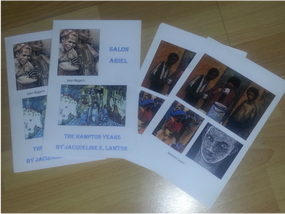 After the speeches, the reading commenced and I started to feel quite nervous. I so wished that I had had a glass of wine. But the cast was really wonderful and soon, the laughter, nods of resonance and the leaning in to listen more intently began and I felt myself relax. At intermission, I got my glass of wine and then mixed and mingled. Many members of the audience wasted no time speaking to me and asking questions about the play. I didn’t mind at all. In fact, it got me really excited about the post show discussion, which was quite riveting. The reading ended and the audience applauded. I took my seat before this room full and began to take questions. I spoke about what inspired the play, my research process and the new play development path that the play has been on. I was told by an audience member, that if he had not met me, he would never know if the play had been written by a Jewish person or a Black person, which for me speaks to the play’s balance of themes, evenness of tone and richness of characters. Then, a rather interesting, provocative and compelling conversation emerged. Two members in the audience felt that Jewish values weren’t represented, because religion was not at the forefront of the play. Conversely, several others audience members felt that the Jewish values portrayed in the play allowed Jewish people to be seen as more than just a religion. Here’s the reason all of this came about: THE HAMPTON YEARS is a play about race and ethnicity and specifically, about how racial prejudice and ethnic discrimination impact the lives of individuals in the arts, in academia, and in the military. It examines the impact of World War II on Jewish refugees living in the United States and their role in shaping the lives and careers of African American art students in the segregated south. My research began with a deep investigation of Jewish history, culture, art and religious. I soon learned that Viktor and Margaret Lowenfeld, our Austrian Jewish characters, were not religious. Instead, they were upper-class, part of the Intelligentsia and quite assimilated into Austrian culture. As such, we don't see religious rituals taking place in the play. It was truly enlightening to participate in this discussion and I imagine this question will come up again and again. While I won’t dishonor the characters by adding religious ritual to the play, it might be interesting to have President MacLean or perhaps even Elizabeth observe the absence of a religious practice in the lives of Viktor and Margaret. Something to ponder in the days, weeks, and rewrites ahead. For now, let's enjoy some photos from the reading: 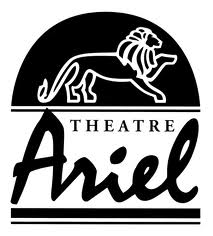 On Saturday morning, we a had read-through of The Hampton Years at the home of Theatre Ariel's Artistic Director, Deborah Baer Mozes. My wonderfully brilliant and talented cast included Taysha Canales, Akeem Davis, Khris Davis, Stephen Hatzai, Robert Hargraves, Ian Lithgow, Ashley B. Spearman, and Miriam White. Oh, I learned that Seth Rozen, Artistic Director of Interact Theatre, assisted Deborah in bringing our cast together and I couldn’t be more appreciative of his efforts and generosity. You should know that this was their second rehearsal. They met on Thursday evening, only I wasn’t able to join them. However, I did send along a dramaturgy packet and video links to songs that appeared in the play, which I’m told was helpful in their preparation. As we sat around Deborah’s dining room table, she guided us through an intensive, thoughtful and incredibly productive 4 1/2 hour rehearsal. In addition to their passion, energy, and talent, what I needed most from our time together was their inquiry, insight and immediate response. Working with a cast and director who was new to this play was really quite useful. It really allowed me to hear the script anew. No question was to too small, no observation was slight. This current draft came as a result of the new play development workshop and Tea at Two reading in October at Theatre J, and the subsequent script meeting in December with director Shirley Serotsky, dramaturg Otis Cortez Ramsey-Zoe and artistic director Ari Roth. I did rewrites in January that focused on the following:
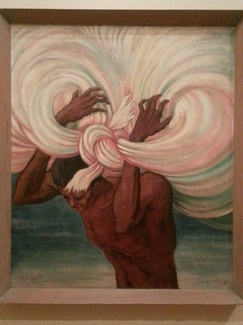
Hearing this new material for the first time was really exciting, informative and inspiring. I was able to see where I need to dig deeper and where I could pull back. What helped is that Deborah and the cast created a space where we were all in service of the script. There were no egos in the room. It was really beautiful. When we finished rehearsal, I felt really good about the work we were presenting and was excited to hear it in front of the audience. Of course, I’ll share more on how those two readings and the post show discussion went in my next two posts. For now, please enjoy these pictures from my time with director Deborah Baer Mozes and my cast Taysha Canales, Akeem Davis, Khris Davis, Stephen Hatzai, Robert Hargraves, Ian Lithgow, Ashley B. Spearman, and Miriam White. "Work shall be done for six days, but the seventh is the Sabbath of rest, holy to the Lord ... It is a sign between Me and the children of Israel forever; for in six days the Lord made the heavens and the earth, and on the seventh day He rested and was refreshed."
Exodus 31:15-17, New King James Version After a 4 hour Megabus bus ride from D.C. to Philly (that was suppose to be three, but was extended owing to folks getting ahead of a fabulous 3-day weekend), I experienced my first bout of motion sickness and observed my first Shabbat. Theatre Ariel’s Artistic Director Deborah Baer Mozes invited me to join her; and I was excited and nervous about participating in this holy ritual. Excited, because it's something that I have wanted to do since I began researching Jewish life, culture, history and art for THE HAMPTON YEARS. Only Viktor and Margaret aren’t religious, so my research shifted a bit. Nervous, because I thought wouldn't be able to eat the food and that I would not only go hungry, but also insult my gracious hosts: Joel and Irene Glickman. First and foremost, the experience was beautiful, moving and reminiscent of my churchgoing days as a child. From the lighting of the candles, the blessing given by Deborah, Irene and Miriam; the recitation of the Kiddush delivered by Joel, and the prayer over the bread and wine, I was reminded of how comforting, grounding and supportive that dutiful prayer, ritual and fellowship can be. Over the course of my 35 years and really until I was 22, I have been a member of/practiced/studied seven religions: Baptist, Buddism, Catholic, Church of Christ, Hindi, Methodist, and Mormon (alphabetic order). While I remain a spiritual person, theatre has replaced religion in my life. I cherish the ritual and fellowship of attending and creating theatre. SIDE NOTE: I must confess that I’m overzealous and evangelical in my enthusiasm for it. Many the unsuspecting persons in line at Starbucks/Giant/Harris Teeter/Safeway/Trader Joe’s/Whole Foods, the innocent passenger on the metro or bus, or captive cabdriver has heard me speak on the magnificence of the D.C. Theatre community and the benefits of theater to education and society. I’ve even gone so far as to suggest the perfect date night, family outing, summer camp, acting class for the professional who wants to improve their communication skills or where to send your parents/in-laws while they’re in town. It’s a bit out of hand and I tell myself that I’m going to stop. But then I see something great, learn about a new company or read the description of a new program, and find that I just can’t help myself! END SIDE NOTE. Now, as for the food, fortunately for me, Joel and Irene’s lovely daughter Miriam is a vegetarian. (She is also a wonderful flautist and piccolo player. Mind you, I realize this is not part of the Shabbat ritual, but when I learned she was a musician and heard her spoke so passionately about theatre, I couldn’t help but request a song. She played the most song for us!) For dinner, we had lentil balls, red lentils and wheat berry salad, broccolini (my new obsession), and a winter vegetable pie (with a pie crust to rival my mother’s!) followed by a rich and decadent chocolate cake. Oh my goodness, it was quite a feast and such a wonderful time to reflect and spend time together. In my next few posts, I’m going to tell you about our rehearsal, the readings and post show discussions and my visit to the National Museum of American Jewish History’s Beyond Swastika and Jim Crow exhibit. This was such a special, important and enriching weekend. I am forever appreciative of Deborah Baer Mozes, who hosted me in her home, the smart, talented and brilliant cast of The Hampton Years, and to Theatre Ariel for their generous and encouraging support of The Hampton Years. Theatre Ariel Reading of The Hampton Years - Interview with Deborah Baer Mozes, Artistic Director2/15/2013 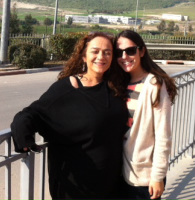 JACQUELINE LAWTON: Why did you decide to get into theater? Was there someone or a particular show that inspired you? DEBORAH BAER MOZES: My parents took me to the theater and opera at a young age. There were children’s theatre productions in the Village, Leonard Bernstein conducting Children’s concerts. I saw Shakespeare productions in NYC and at the Shakespeare festival in Conn. They had a good friend who as an opera singer/performer at the Amato Opera Company on the Lower East Side. Theatre, all the arts, were an ever present part of my family’s life or growing up. My grandmother took me to see musicals on Broadway. I can’t say that any one production inspired me. But I was always putting on shows for my parents. In fact, when we would have family friends over I made all the kids do shows – I remember once telling them, "They didn’t get dessert, if we didn’t do a show." They were all new works – I created and directed. So I think I was born to be both a director and dramaturg. JL: What excited you about directing the reading of THE HAMPTON YEARS? What made you say yes? DBM: I have many points of connection with your play. My mother was a refugee from Nazi Germany, she came here alone at age 16. My grandparents never got out and perished in the Shoah. So the story of this refugee family connects. Margaret’s letter writing is a familiar story: my mother often told me of writing letters to Germany, of trying to get her parents out and later trying to find out what happened to them. The other point of connection is the civil arts movement. My parents were civil rights activists. In fact, they were involved in block busting. When I was little, I remember going to civil rights rallies. My dad went on the March on Washington. I wanted to go with him but my mom was concerned that I was too young, especially if it became violent. I remember sitting glued to the T.V., hoping to see my father in the crowd. Dr. Martin Luther King was one of the heroes of our home as was Paul Robeson. Our circle of friends was very multi-ethnic and cultural. Sadly, I’m afraid that my life is more white now than when I grew up. I also love your ear for dialogue. This is such an important and unknown story. I am thrilled to be sharing it with our Theatre Ariel audience. Also, it’s a wonderful intersection of timing that I discovered your play at a time that we could present this reading in conjunction with the National Museum of American Jewish History’s BEYOND THE SWASTIKA and JIM CROW exhibition. JL: Set in Hampton, Virginia in the 1940s, THE HAMPTON YEARS examines the impact of World War II on Jewish immigrants living in the United States and their role in shaping the lives and careers of African American students in the segregated south. This play investigates the various ways in which racism and bigotry negatively impact the arts, academia and military. Where do you feel we are in terms of race relations in the U.S.? DBM: That’s a long conversation. On one hand, we have an African American President, amazing. Dr. King’s dream come to true. On the other hand, I think that most of us live side by side culturally, but don’t interact. As I said, my life is much “whiter” than when I grew up, which was with racially, ethnically diverse friends and when I was active in the National Conference of Christians and Jews. My daughter went to Temple University, considered one of the most diverse universities in the US, Yet, she always commented that it was a diverse student body, but the social circles were at the end of the day separate. The Asian students hung out with the Asian students, the African American students with the African American students etc., etc. Is this the result of racism and bigotry? I do think that yes, racism, anti-Semitism, and sexism continue to live below the surface of American society. But it's nothing like it used to be and it's not that way not everywhere. After all, we twice elected an African American President and I read somewhere that Obama got 45 percent of the vote in Georgia! JL: THE HAMPTON YEARS also celebrates and honors such extraordinary artists as John Biggers, Elizabeth Catlett, Samella Lewis, Viktor Lowenfeld and Charles White for their bold and courageous ability to overcome these challenges and create beautiful, powerful and lasting works of art. Why do you feel this play is relevant to today audiences? DBM: Before I go to the relevance to our audiences, I want to thank you for introducing me the works of these four African America artists. The power of John Biggers work, how he captures the working man, incredibly moving work. It reminds me of some other Kathe Kollwitz’s work, a German printmaker and sculptor, whose work depicted the struggles of the working men and women, of the harshness of the human condition in the 30’s and early 40’s. As to the relevance to our audience, THE HAMPTON YEARS is like a tapestry (which in fact is the way women create art) weaving many themes and issues – so I think there are many entry points – places of relevance:
These are questions your play raises and whether one is an artist or a parent these questions will arise. All relevant to our audiences. JL: If there is one thing you want audiences to walk away knowing or thinking about after experiencing THE HAMPTON YEARS, what would that be? DBM: What is identity? And as the caterpillar says to Alice – and WHO ARE YOU? How to you give that YOU out in the universe. I want them to come out of the theatre and google the work of Bigger, Lewis, White and Catlett. JL: What’s next for you as a director and your company? DBM: I am doing a project that is very out of the box for me. I am working with Marcus Stevens on a cabaret – which will have its first draft showcase at our next Salon in April. It’s very exciting for me to venture into this genre and world. This summer, I plan on returning to a very personal project that I started two years ago, at the suggestion of my friend and rabbi, David Ackerman. My mom, who passed away almost three years ago, wrote two novels about her life in Nazi Germany. I did a first draft, transforming her work to the stage, I needed to step back. I hope to have the time this summer to work on this script. Down the road, I would like to do co-productions with other Philly theatres to bring new works of Jewish theatre to their audience. |
My BlogI'm a playwright, dramaturg, and teaching artist. It is here where you'll find my queries and musings on life, theater and the world. My posts advocate for diversity, inclusion, and equity in the American Theatre and updates on my own work. Please enjoy!
Categories
All
Archives
June 2020
Reading List
|

